Repro India: A revolution in book manufacturing
Content is king at Repro India, whose plants are becoming less print centric. This ensures publishers can create myriad avatars of a book, as Ramu Ramanathan and Samir Lukka find out
09 Mar 2011 | By Ramu Ramanathan & Samir Lukka
Repro India reported standalone earnings results for the third quarter ended December 2010. The total income rose 25.65% to Rs 651.36-million, when compared with the prior year period.
From the Drupa year in 2008 to now, Repro has been adding a raft of kit, bolstering existing set up, and establishing a new unit in Surat. And even though the company’s net profit declined 13.52% to Rs 52.94-million over the prior year period, the good news is the company’s net profit has increased by 40% over the previous quarter this year.
We met up with Pramod Khera and his team at the Navi Mumbai unit which was established in 1991. And through that meeting one understood why Repro is trying to unshackle itself from its past reputation of being a monolithic, sluggish book-printing giant.
Khera who is an executive director at Repro since 2009 is armed with a BTech from IIT, a PGDIM from IIM and PhD in Knowledge Management.
Clearly, Khera and his team are using the best of knowledge management to create a value chain for a publisher. In real terms this means: launching one title a day for a small publisher or producing 1,000 copies of a book within 48 hours or providing an access to 350 titles on a web store front or printing more than million books in two weeks.
Providing an insight into the business transformation happening at Repro, Khera says: "We are moving away from print-centric thinking." He adds, "There are invisible costs in book publishing. Plus the publisher struggles with content management, inventory and obsolescence costs due to storing of books.
At Repro, we are revolutionising the book publishing industry. We tell the publishers to concentrate on editorial and sales to end customers. We will provide end-to-end solutions for all other activities – content, digitalisation, printing and fulfillment. Those ways a publisher can grow the business and enhance margins."
New innovations
Repro India was established with its offset unit and design services. Among other things, it focused on the annual reports market.
In those days, it was in the news for two reasons: the shift of it print production unit out of Mumbai. And providing services at 30% lower cost than the market rates which were prevalent in those days. As a result, many print giants in Mumbai were toppled.
Repro’s success inspired awe
After a steady period of slow growth in the past few years, Repro India is sprinting with a focus on educational books. It has segregated its business into various segments: print-on-demand, short-run, sheetfed and web offset.
Today, it operates out of two floors at Navi Mumbai, running a fleet of digital and litho presses. The capacity is being further enhanced to produce up to two million books in a day.
The Surat facility which came into being in 2009, can print and bind up to 100 million books a year. It caters to the needs of offshore publishers. Apart from USA and Europe, Repro India is targeting customers in emerging economies.
As Rajnish Shirsat, who is the vice president, print solutions, says, "It’s astonishing how much the world has changed in the past two years. And exports to these countries are booming. Today, consumers in Africa, Asia and Latin America can afford houses, cars, appliances, iPods and other goods that were unimaginable just a generation ago."
For Repro this has meant significant inroads into South Africa and 13 African countries. And a healthy targeted turn-over of Rs 250-crore for 2010-11.
Process driven approach – ERP and ECM
At the heart of the Repro process is an Enterprise Resource Planning (ERP) software called EFI Monarch. It was installed at the Navi Mumbai plant to provide an integrated management system.
EFI Monarch’s acquisition component, Digital StoreFront, creates a customised internet desktop for a publisher to order and monitor production status.
"Publishers working with Repro have access to a digital storefront from where they can place orders for books. Once approved, the orders are automatically scheduled for production. This minimises turnaround time," says Baiju Gujarathi, vice president for IT governance.
When an order is confirmed, it enters into a job management cycle. The entire plant operations are scheduled around the job, enabling Repro to make productive use of the available infrastructure.
"ERP optimises print-job schedules across multiple machines across our plants. Our sales managers can place online requests for quotes. The Request For Quote (RFQ) is processed by the system to generate an estimate, via the estimation module. Customers can get their quote in less than 24 hours," adds Gujarathi.
Repro converts content for use in various media like books, e-books and interactive media. "We create layouts, templates, illustrations, designs, set type and conversion from monochrome to four-colour," says Amit Chavan who is in charge of Content Services.
"This year, we are investing Rs 10-crore in IT and Rs 7-crore in content management," says Khera. "We are helping publishers to reduce inventory costs to zero. This effectively results in improving their net margins by over 20%."
Best of both worlds
Repro India’s digital operation comprises a raft of high-end kit, which includes an IGen 3, an InfoPrint, Digimaster, and Rotatek with a customised Kodak Prosper digital heads for "printing of variable data before or after colour printing." This operation is overseen by Anirudha Khandekar, general manager for digital operations.
Khandekar like Khera is a new face in the Repro team; and like Khera he has impressive credentials. Besides being an opening batsman in Repro’s cricket team, he is a print technologist from PVG Pune and an M-tech from Michigan.
"We have a tie-up with a partner in South Africa which makes it possible for us to deliver to a customer in Cape Town with the same turnaround time. Our servers are connected to our partner’s server," adds Khandekar.
Through this partnership, Repro offers customers the ability to order from overseas and if need be, source from the company’s plants. Khandekar highlights the interface with one of Repro’s key US-based Global client, to underscore ERP integration of the digital process.
He says: "We have created a Web Store Front for our client which hosts all the titles. The regional distributors of that client are given login ids through which they can place an order according to their requirement. Then Repro delivers it in 48 to 72 hours."
The company has notched up 8% of its revenue in 2010 from digital printing. We are shipping digital manufactured books to seven countries.
Repro’s production of books is based on a strong foundation. The shopfloor in Navi Mumbai and Surat boast of binding lines from Kolbus and Accoro for soft cover books, Aster book sewing machines, Muller-Martini’s Ventura MC sewing machine, and kit from Welbound. It has PUR capabilities in Surat which caters to the export market.
Away from conventional thinking
Repro derives 80% of its revenue from book publishing with 55% of its services for export and 45% for domestic market making a total tally of around 500 publishers under its belt.
In the past six months, Repro has been reaching out to its core group of supporters through its "Leaders and Legends" seminar which it hosted in Delhi and Hyderabad.
According to Jyostna Chugh, vice president, corporate communications at Repro, "This is an initiative to bring the publishing community together to discuss trends and issues in the changing market place. Most publishers felt that such an event brought together members of the community, big and small."
It included an interaction with Robert Baensch, an e-publishing evangelist and strategies like monetisation up his sleeve.
Chugh is excited about the new initiatives at Repro, including the re-designed website. As we exit, Repro’s method in their madness stays with us. Especially their ‘can-do’ attitude which is what created its reputation in 1991, in the first place.
FACTFILE
|
REPRO – TOP TEN MANTRA
|
Repro India kicks-off book revolution in education. "Books will never be unfashionable," says Pramod Khera
Breaking News: Repro India acquires printing operation of Macmillan


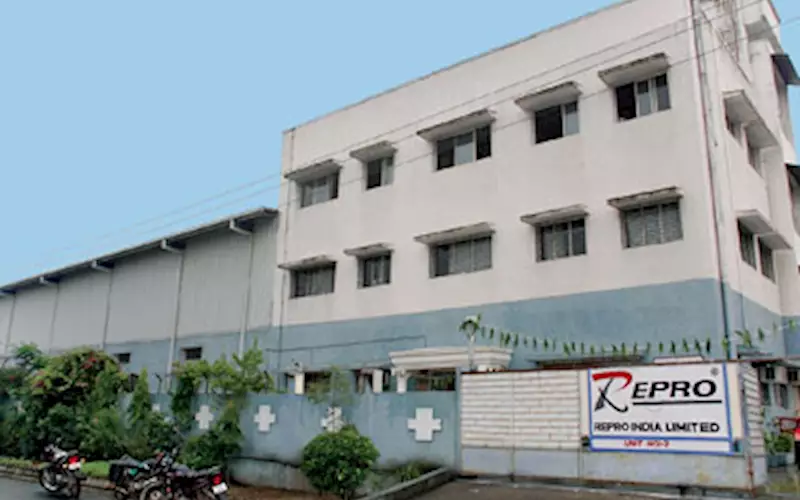
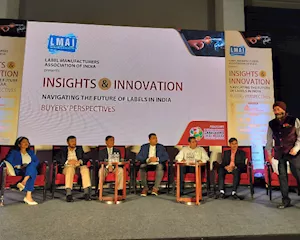
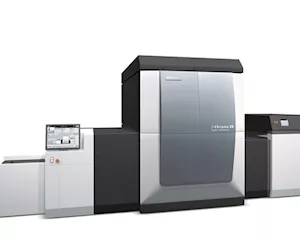
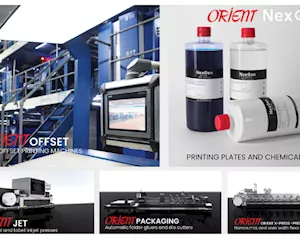
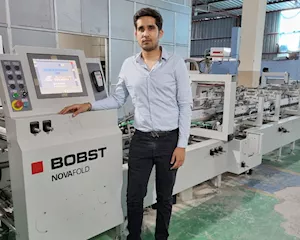
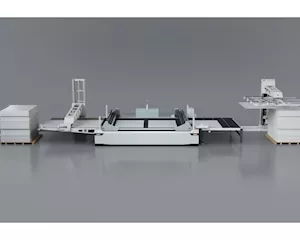






 See All
See All